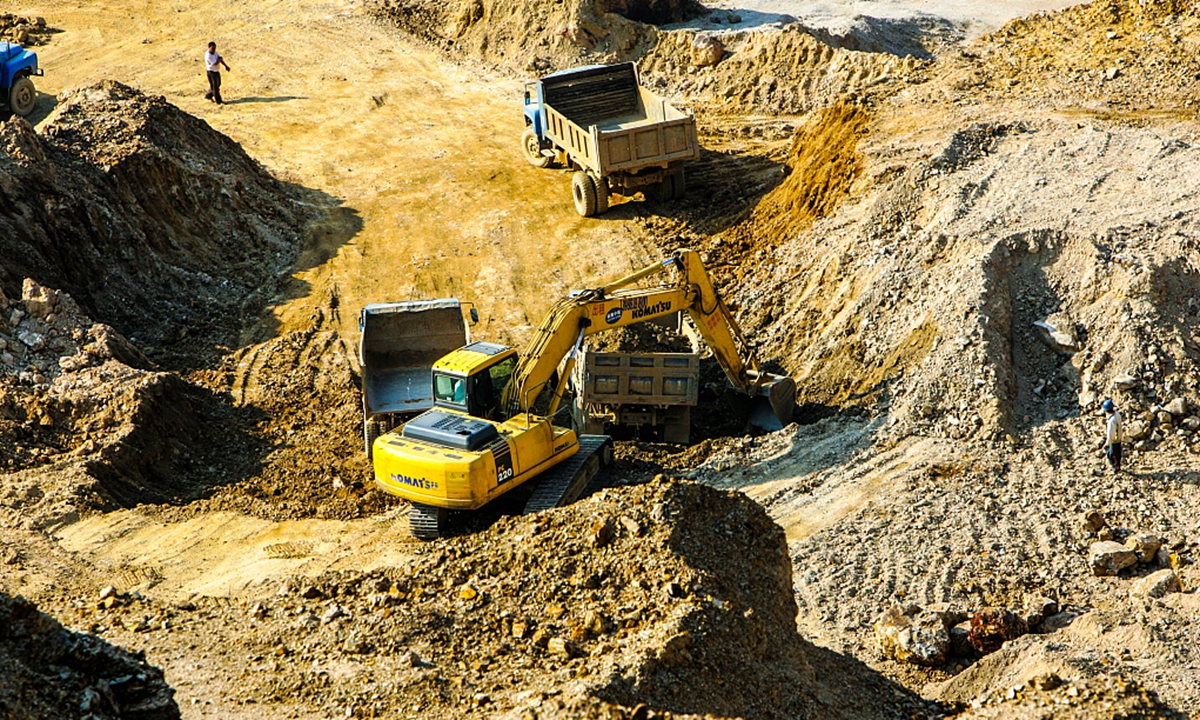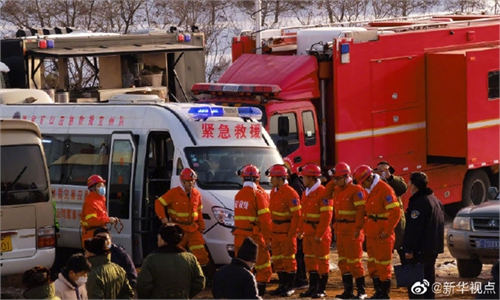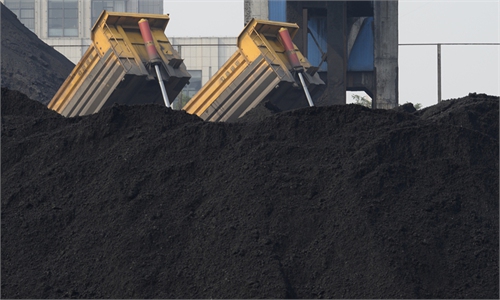
Photo:VCG
The US and some other Western countries recently announced an alliance to produce and buy critical minerals from countries with "stronger environmental and labor standards," Reuters reported, saying that the voluntary alliance is expected to "reduce business with market leader China."
"Unless China and Russia are willing to put in place ... measures required to be able to legitimately say that they are supporting these kinds of standards then it would essentially mean ... we will be buying alternatives as we can," Canada's Natural Resources Minister Jonathan Wilkinson said in an interview, according to Reuters.
The dominant Western narrative is that China disrespects labor standards and destroys the environment in order to meet its resource needs, but this seriously deviates from reality. As the US, Canada and other Western nations are developed countries and China is a developing one, inevitably there are differences among those economies in terms of environmental, labor standards and other aspects. However, it doesn't mean low standards and poor enforcement in China. At the very least, Western politicians don't have the right to decide which one is better.
It must be pointed out that China has place a high priority on building a resources-efficient and environmentally-friendly economy over the past decade. China's mining enterprises are busy upgrading production equipment and installing environmental protection systems to meet environmental standards set by the country. It has shown commitment to maintaining high environmental standards in the sector.
What concerns the industry most is the lies and accusations against China fabricated by Western politicians will disrupt the global industrial chain, and trigger technology protectionism by other players. Using environmental and labor standards as an excuse to recklessly interfere in economic affairs, their real purpose is to exclude China from the global industrial chain and reconstruct their production capability for critical minerals, but, that is an almost impossible task.
China is one of the biggest producers of many critical minerals that are essential to those used in the manufacturing of elements ranging from electric vehicle batteries to solar panel. It refines 68 percent of nickel globally, 40 percent of copper, 59 percent of lithium, and 73 percent of cobalt, according to media reports. It is also a strategic player in later stages of the supply chain, such as manufacturing of battery cell components. It accounts for most of the global production of mineral-rich components for battery cells, including 70 percent of cathodes, which are the most important component and can account for half the cost of a manufactured cell, media reports said.
The reason why China plays an important role in the global supply chain is partly because the country has low-cost and low-pollution processing capacity after years of efforts in forming a complete industrial chain and accumulating experience in reducing pollution. The complete industrial chain and processing technology help China build and maintain its core competitive advantages.
The voluntary alliance of the US and some other Western countries won't damage the competitive advantage. Some Western countries view their "dependence" on China as a "security risk" and have sought to diversify their import sources, but there are many difficulties and challenges ahead, and they still have a long way to go to develop their own supply chains.
The author is a reporter with the Global Times. bizopinion@globaltimes.com.cn



